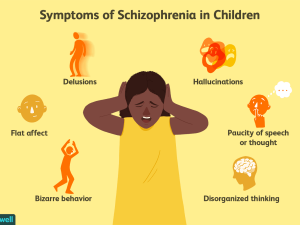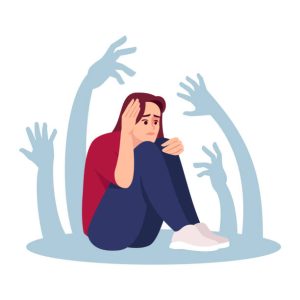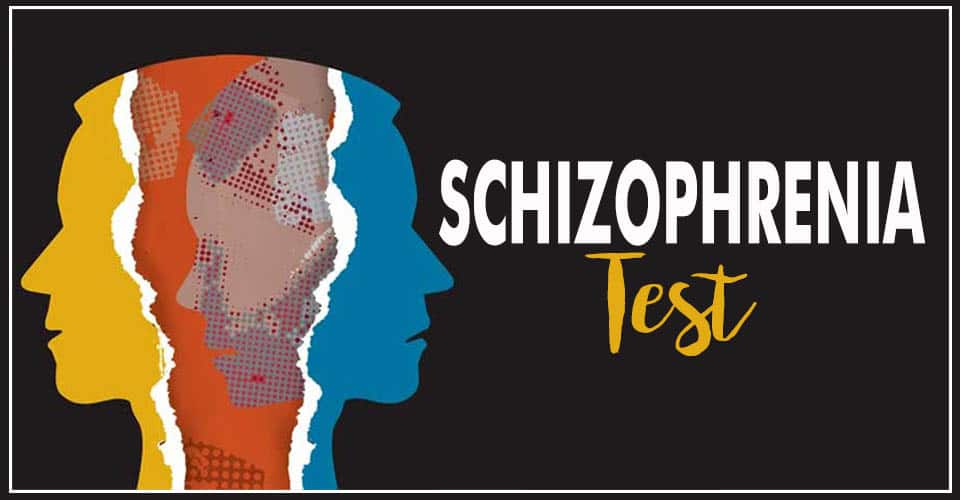Do you sometimes feel like you’re not in control of your own thoughts? That someone else is controlling what you think and say? If so, you may be wondering if you have schizophrenia. However, this can be a difficult question to answer on your own, which is why we created this schizophrenia test. Therefore, This test will help you determine whether or not you may be suffering from this mental illness.
Contents
- 1 What Is Schizophrenia?
- 2 Symptoms Of Schizophrenia
- 3 Causes Of Schizophrenia
- 4 Risk Factors For Schizophrenia
- 5 How Is Schizophrenia Diagnosed?
- 6 Long-Term Outlook For Schizophrenia
- 7 Schizophrenia Test Sample Questions
- 8 Answers
- 9 What To Expect From Schizophrenia Test?
- 10 Schizophrenia Treatment
- 11 When To See A Doctor?
- 12 Conclusion
- 13 A Word From Therapy Mantra
What Is Schizophrenia?

Schizophrenia is a mental health condition that affects one’s ability to think and behave in normal ways. It can cause hallucinations, delusions, disorganized thinking and speech patterns, as well as other symptoms. When schizophrenia develops during adolescence or young adulthood it often leaves people with permanent disabilities due to brain damage caused by the illness itself or from substance abuse as a result of schizophrenia.
Symptoms Of Schizophrenia
The symptoms of schizophrenia can vary from person to person, but there are some common signs that you might have schizophrenia. These include-

- Hallucinations or delusions about being persecuted by others
- Disorganized speech and thinking patterns
- Difficulty concentrating on tasks for long periods of time
- Feeling detached from reality or having an impaired sense of self-awareness
- Depression
- Anxiety
- Suicidal thoughts
Causes Of Schizophrenia
Schizophrenia is caused by a combination of genetic and environmental factors, including brain abnormalities that lead to changes in behavior or thinking patterns. These changes may be subtle at first but they can become more severe over time if left untreated. There are several types of schizophrenia, including paranoid schizophrenia which is characterized by delusions about being persecuted or having special powers; catatonic schizophrenia where people experience extreme withdrawal from society and have difficulty functioning in daily life activities like eating, sleeping, walking around without assistance; disorganized schizophrenia where speech patterns become incoherent and there’s trouble with memory retention.
Risk Factors For Schizophrenia
The risk factors for schizophrenia include:

- Having a family history of schizophrenia or other psychotic disorders
- Being male (men are more likely to have it than women)
- Using drugs such as cannabis during adolescence when your brain is still developing (cannabis has been linked to an increased risk of schizophrenia)
- Being exposed to stressful life events such as violence, abuse, or neglect.
These risk factors don’t mean you will definitely develop schizophrenia, but they increase your chances of developing the condition.
How Is Schizophrenia Diagnosed?
Schizophrenia is diagnosed by a mental health professional after reviewing your symptoms and medical history. There is no one test that can diagnose schizophrenia, so a variety of assessments may be used such as interviews, psychological tests, and scans of the brain.
There is no one-size-fits-all test for diagnosing schizophrenia, but a mental health professional will likely ask about your symptoms and conduct a physical examination to rule out other illnesses that can cause similar symptoms. If schizophrenia is suspected, your doctor may order blood work or an MRI scan to help confirm the diagnosis.
The schizophrenia test is not a one-time event but rather a spectrum of disorders that range in severity and symptoms over time. schizophrenia is a chronic illness so it’s important to continue taking medications even if symptoms seem under control because they can return at any time without warning. Schizophrenia test may include tests like blood work or MRI scans to rule out other illnesses that can cause similar symptoms such as depression and anxiety disorders.”
Long-Term Outlook For Schizophrenia

The long-term outlook for schizophrenia depends on many factors such as the severity of your illness and whether or not you have any other mental health conditions like depression or anxiety which could complicate treatment options. schizophrenia is a chronic illness so it’s important to continue taking medications even if symptoms seem under control because they can return at any time without warning.
If you answered yes to any of the symptoms above. Then it is important to consult with a mental health professional to determine if you have schizophrenia. You should also take a schizophrenia test for diagnosing your condition.
In severe cases of schizophrenia where people are having trouble functioning in daily activities. They may need hospitalization until their symptoms improve enough. So that they can return home safely.
Schizophrenia Test Sample Questions

Please answer the following 20 questions to help determine if you might have schizophrenia.
1. Do you experience any hallucinations or delusions?
Yes
No
2. Do you have difficulty concentrating on tasks for long periods of time?
Yes
No
3. Do you feel detached from reality or have an impaired sense of self-awareness?
Yes
No
4. Do you feel like people are talking about you or plotting against you?
Yes
No
5. Do you experience sudden changes in mood or behavior?
Yes
No
6. Do you have a history of drug or alcohol abuse?
Yes
No
7. Did your schizophrenia symptoms start abruptly or did they develop gradually over time?
Abrupt
Gradual
8. Do your symptoms interfere with your ability to work, go to school or carry out everyday activities?
Yes
No
9. Do you feel like your thoughts are being controlled or influenced by some external force?
Yes
No
11. Do you have any family members who also suffer from schizophrenia?
Yes
No
12. Have you ever been diagnosed with another mental illness such as bipolar disorder or major depression?
Yes
No
13. Are you experiencing schizophrenia symptoms right now?
Yes
No
14. Do your schizophrenia symptoms seem to get worse when you are under stress?
Yes
No
15. Are there things in your life that trigger schizophrenia episodes or schizophrenia attacks? If so, what are they and how long do the episodes last? (Answer this question even if you haven’t experienced any schizophrenia episodes yet)
Yes
No
Episodes
16. Do you have a hard time distinguishing between reality and fantasy?
Yes
No
17. Are your schizophrenia symptoms causing problems in your personal relationships?
Yes
No
18. Have you ever attempted suicide?
Yes
No
19. Do you have schizophrenia episodes where your mood changes drastically and you experience mania or depression for no apparent reason? (Answer this question even if schizophrenia symptoms haven’t affected your mood yet)
Yes
No
20. Have you ever been diagnosed with schizophrenia before? If so, how long did the schizophrenia symptoms last?
Yes
No
Answers
If you answered yes to any of these questions, please consult a mental health professional for further evaluation. Because schizophrenia can be a very serious mental illness and early diagnosis and treatment are crucial for success. There is no one-size-fits-all schizophrenia cure but schizophrenia medications such as antipsychotics can help schizophrenia patients manage their schizophrenia symptoms.
What To Expect From Schizophrenia Test?

This schizophrenia test is not a schizophrenia diagnosis. Because a schizophrenia diagnosis is only possible by a mental health professional. So your doctor will evaluate your schizophrenia symptoms and ask you more questions? If you feel that this schizophrenia test indicates that you may have schizophrenia, please consult a psychiatrist as soon as possible to discuss treatment options for your specific schizophrenia symptoms.
Schizophrenia Treatment

Schizophrenia treatment usually involves medication such as antipsychotics, therapy, and lifestyle changes like avoiding alcohol use which can worsen symptoms of schizophrenia or trigger relapse. In severe cases of schizophrenia where people are having trouble functioning in daily activities, they may need to be hospitalized until their symptoms improve enough so that they can return home safely.
Medication
Medication for schizophrenia usually includes antipsychotic drugs which help to control hallucinations, delusions, and other symptoms. There are several different types of antipsychotics available, so it may take some time to find the medication that works best for you.
Therapy
Therapy for schizophrenia can include individual counseling, family therapy, or cognitive-behavioral therapy (CBT). Because it helps schizophrenia sufferers learn how to deal with their symptoms and manage them in a healthy way.
Lifestyle Changes
Schizophrenia is a lifelong condition, but it may get better or worse over time depending on your treatment plan (medication and therapy) as well as certain lifestyle choices like avoiding alcohol use which can worsen schizophrenia symptoms or trigger a relapse.
When To See A Doctor?
If you are experiencing any schizophrenia symptoms, it is important to see a doctor as soon as possible. Because schizophrenia can be a very serious mental illness and early diagnosis and treatment are crucial for success. Although, there is no one-size-fits-all schizophrenia cure. But schizophrenia medications such as antipsychotics can help schizophrenia patients manage their schizophrenia symptoms.
Conclusion
In conclusion, the schizophrenia test is a useful tool to determine whether or not you may be suffering from schizophrenia. Because these test questions are designed to help identify key symptoms of schizophrenia, and by answering them honestly, you can get a better idea of your current state of mind. So if you have any concerns about your mental health. Then it is important to seek professional help from a doctor or psychiatrist.
A Word From Therapy Mantra
Your mental health — Your psychological, emotional, and social well-being — has an impact on every aspect of your life. Positive mental health essentially allows you to effectively deal with life’s everyday challenges.
At TherapyMantra, we have a team of therapists who provide affordable online therapy to assist you with issues such as depression, anxiety, stress, workplace Issues, addiction, relationship, OCD, LGBTQ, and PTSD. You can book a free therapy or download our free Android or iOS app.


